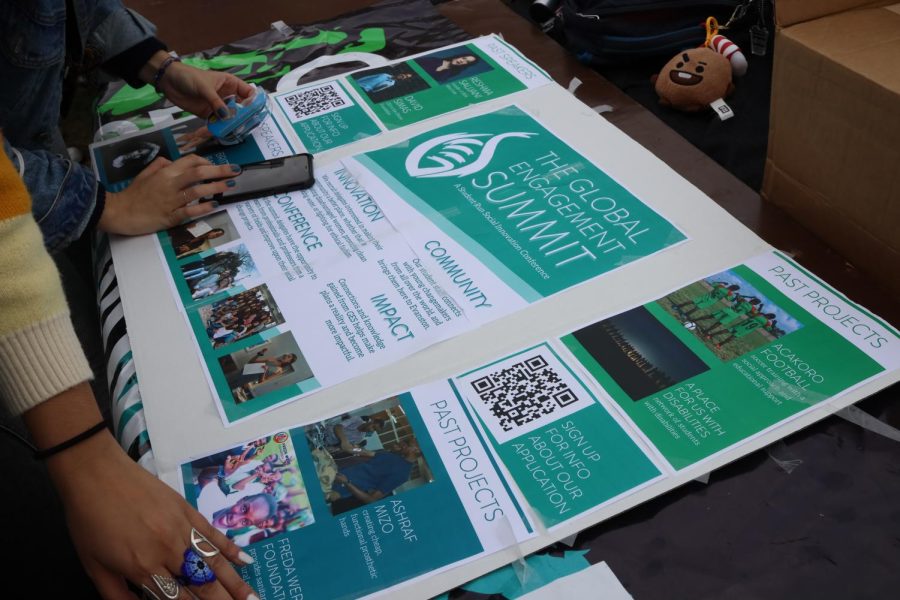Climate activist and policy expert Ayana Johnson kicks off Global Engagement Summit
Daily file photo by Joanne Haner
This year, the annual Global Engagement Summit focuses on sustainability as well as social innovation.
April 22, 2022
The 2022 Global Engagement Summit kicked off Thursday night with a Q&A featuring marine biologist and environmental policy expert Ayana Johnson.
Johnson was the keynote speaker for the annual GES summit, a social innovation conference where delegates can engage with each other, business leaders and nonprofit organizers to develop their existing enterprises and spark ideas for new ones. She discussed strategies for the long game against climate change and the importance of forming diverse coalitions to develop effective solutions.
This year’s summit will feature more workshops and speaker events for delegates, concluding Saturday. SESP senior Julia Borland, co-chair of content for GES, said this year’s conference focuses on highlighting sustainability, an issue that has grown increasingly important over the years.
“We’ve been seeing a lot more projects focused on sustainability from our delegates over the years,” Borland said. “And even for projects that aren’t focused entirely on sustainability, there’s interest in incorporating sustainability into their work.”
Johnson co-founded the Urban Ocean Lab, a think tank for climate policy solutions in coastal cities, and co-created the “How to Save a Planet” podcast.
She also co-founded “The All We Can Save Project” to empower ordinary individuals to become climate leaders in their communities. She said engaging all people in this work is key to amplifying the climate activism movement’s impact.
“A lot of people don’t necessarily see where they fit into the climate movement,” Johnson said. “They don’t think of themselves as an activist in the streets or a climate scientist or a politician, but there are all these other ways to be a part of this work.”
While educating and mobilizing communities about climate change is crucial, Johnson said, there’s no one-size-fits-all approach. Some people respond to hope, others to fear and others even to humor, she said, but it doesn’t matter what the approach is, as long as it motivates people to take action.
Because climate change is already likely affecting something people care deeply about, Johnson said there’s no need to berate them into taking action. Most people only need convincing on their own terms, she said.
When asked what tips she would offer delegates in attendance, Johnson said no one should be afraid to make mistakes in their career. In her experience, trial and error has been a perfectly viable path to success, she said.
Weinberg senior Anna Rubin, co-director of GES, said Johnson’s career embodies the type of social change the summit wants to inspire delegates to enact.
“GES was founded on the idea that through collaboration and innovation, the boundaries of social change are limitless,” Rubin said. “And Johnson’s work is really a perfect example of taking initiative to make progress in the world around us to create a world we want to live in, and for future generations to live in.”
People can contribute to the fight against climate change in a wide range of ways, Johnson said, and it’s important to note there’s no rigid blueprint for who qualifies as a climate activist. She said the rising generation of innovators in this work need to think big — developing large-scale, systems-level, interdisciplinary approaches.
Johnson said changemakers need to be diverse and innovative in their methods to form the strongest team and have the biggest impact.
“Play to your strengths,” Johnson said. “We need everyone to be bringing their superpowers to this work. Not everybody doing the same thing, but doing the thing that only you can do.”
Email: [email protected]
Twitter: @joshdperry
Related Stories:
— Global Engagement Summit to return virtually this weekend for first time since 2019
— A closer look at the Global Engagement Summit
— SustainNU hosts Repair & Reuse Fair to promote campus sustainability












